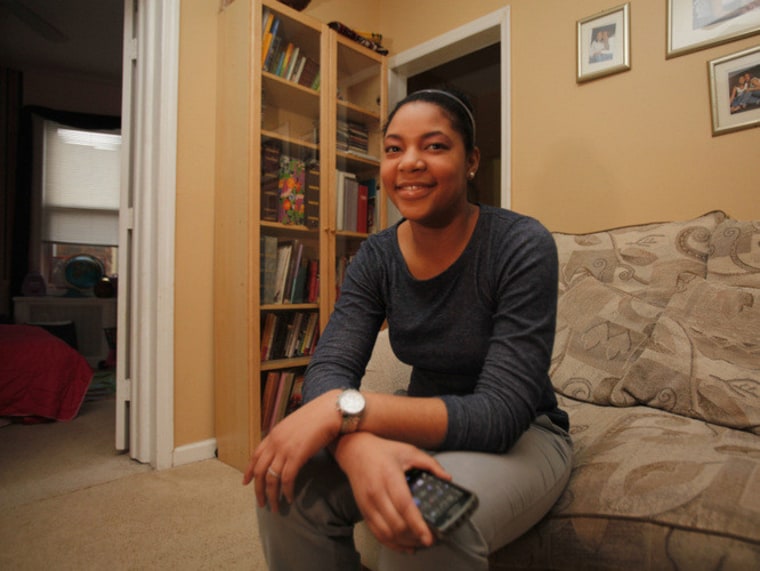A high school student who used her cell phone to take video of police on a city bus was arrested by police and taken into custody after she refused to turn her cell phone off. Police later released her, but not before they erased the video on the teen's phone.
University High School junior class president Khaliah Fitchette was on her way home from school with friends, riding a Newark city bus when a passenger fell from from his seat onto the floor. Police were called to the scene, and as passengers aboard the bus waited, Fitchette used her cell phone video camera to record what was happening. One of the officers told the then-16-year-old not only to stop taking video, but to turn off her phone. She refused to turn the device off, and the officer grabbed Fitchette by the wrist and pulled her off the bus.
She was handcuffed, put in the police car and taken to detention facilities (first a juvenile one, then an adult facility), and during that time the second police officer who was there erased Fitchette's cellphone video. When the two officers realized they had no basis for detaining or arresting Fitchette, they drove her to her mother's workplace, where they dropped her off.
Now the ACLU and Seton Hall Center for Social Justice have filed suit against the Newark Police Department on behalf of Fitchette, charging violations of her First and Fourth Amendment rights. Those rights prohibit unlawful interference with, restraint of and retaliation against free speech and freedom of expression, and unlawful seizure.
"By recording this public event on a public bus, including the recording of police officers, Khaliah was engaging in what is clearly constitutionally protected activity," said Baher Azmy, law professor at Seton Hall University and director of the law school's Civil Rights and Constitutional Litigation Clinic in a video report on the New Jersey Star-Ledger site.
"A female officer told me to turn my phone off, and I told her I didn't want to, and she grabbed me and pulled me off the bus, and took me to the cop car, which was behind the bus," the soft-spoken Fitchette said in the same video.
“I was confused by what was going on,” Fitchette said in an ACLU statement. "The police were treating me like a criminal even though I had done nothing but take a video of a man on the bus.”
Newark's Police Department has a history of heavy-handedness around this issue.
Fitchette's case — the incident happened March 28, 2010 — "marks the third time in as many years when Newark Police have been accused of mistreating residents who were attempting to film them," according to the Star-Ledger. "In 2009, the editor of the Brazilian Voice newspaper sued the department for confiscating a photographer’s camera and handcuffing him to a bench at a police precinct after he photographed a dead body.
"Special police officer Brian Sharif was the subject of a lawsuit two years ago after CBS camerman James Quodomine claimed Sharif placed him in a chokehold and handcuffed him while he was filming a city anti-violence protest in 2008."
The ACLU also has been seeking a federal investigation of the police department, citing Fitchette's case as yet "another example of egregious misconduct," says Deborah Jacobs, executive director of the ACLU New Jersey. "We have already filed a petition documenting 418 incidents of beatings, false arrests, retaliation and other misconduct by Newark Police. This case is another reason why we desperately need federal intervention from the U.S. Department of Justice."
Newark city officials, have said little about the Fitchette case, but are opposing the ACLU's petition for the federal investigation, saying that the civil rights group is not giving the police department enough credit for the progress it has made.
Fitchette, now 17, isn't letting what happened stop her from pursuing her dreams. The teen — who was accepted into universities including Cornell and Villanova — starts college this fall, and plans to become a lawyer.
More stories from Digital Life :
- Secret Service interrogates 13-year-old over Facebook post
- Church spanked for T-Mobile royal wedding spoof
- Bill: Parents can ask Facebook to remove kids' info
Check out Technolog, Gadgetbox, Digital Life and In-Game on Facebook, and on Twitter, follow Suzanne Choney.
